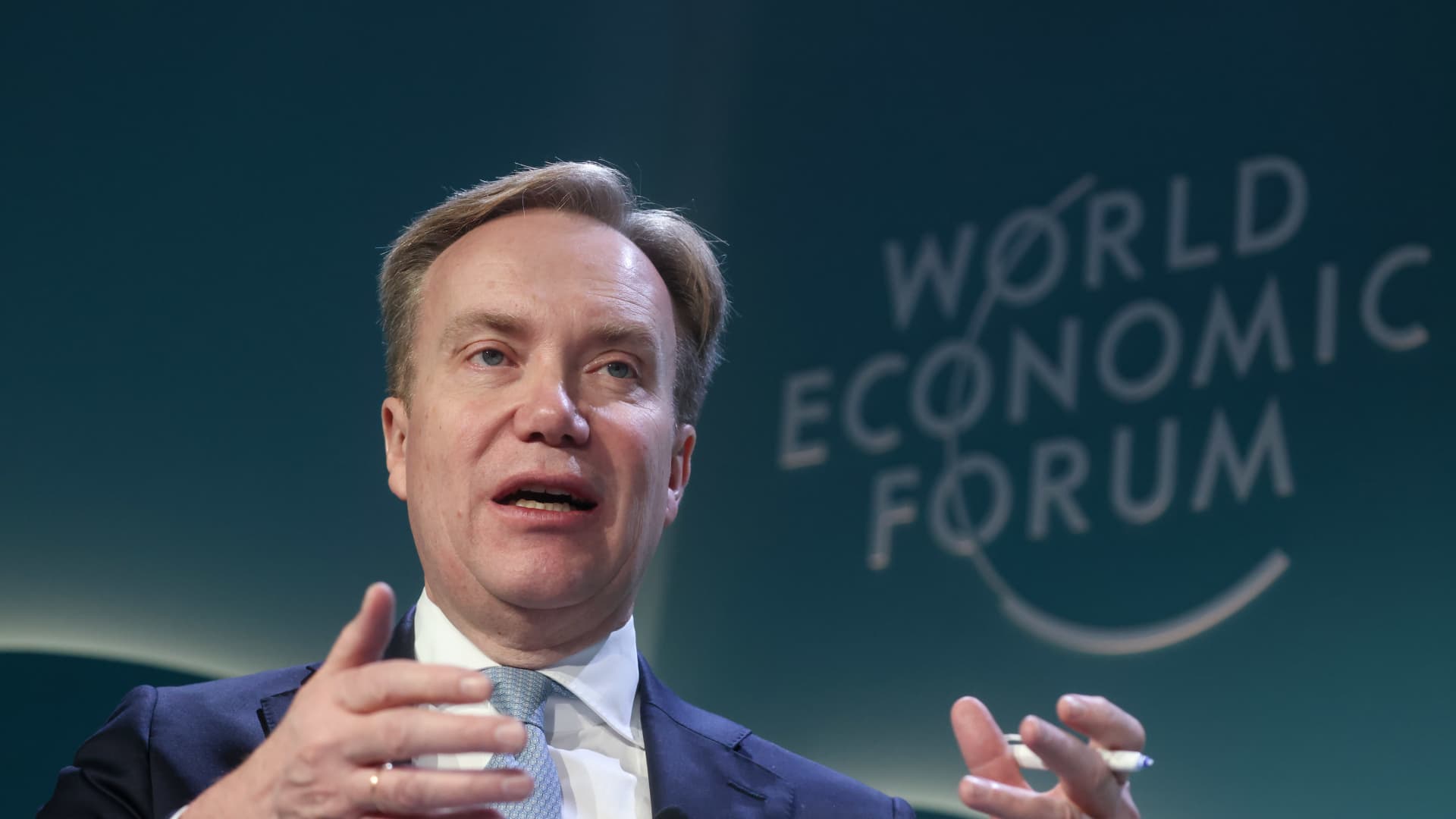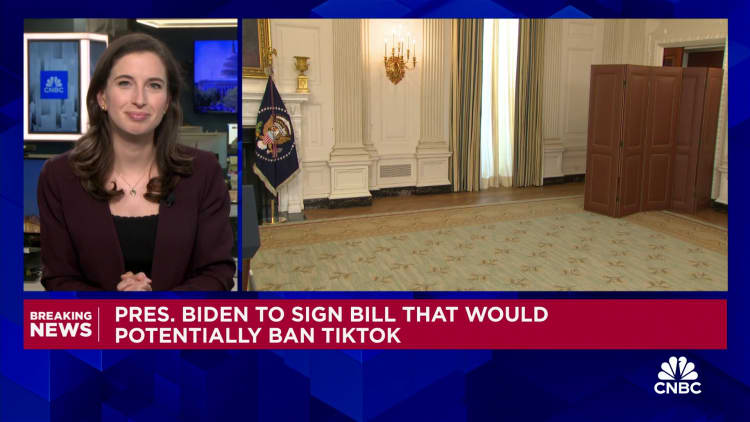In December 2022, Taiwan Semiconductor Manufacturing Company, the major maker of the world’s most advanced chips, announced that it planned to spend $40 billion in Arizona for its first major U.S. semiconductor production center.
The much-touted Phoenix project — with two new factories, including one with more advanced technology — became symbolic of President Biden’s push to boost domestic production of chips, the silicon wafers that help all kinds of devices perform calculations and store data.
Then last summer, TSMC pushed back initial production at its first Arizona factory from this year to 2025, saying local workers lacked expertise in installing some sophisticated equipment. Last month, the company said the second plant would not produce chips until 2027 or 2028 instead of 2026, citing uncertainty over technology selection and federal funding.
Progress at the Arizona site depends in part on “how much stimulus the U.S. government can provide,” TSMC Chief Executive Mark Liu said in an investor call.
TSMC is just one of several chipmakers facing obstacles to their U.S. expansion plans. Intel, Microchip Technology and others have also adjusted their production plans as a decline in sales of many types of chips puts pressure on companies to control spending on new infrastructure. New chip factories are extremely complex, requiring thousands of construction workers, long construction times and billions of dollars in machinery.
The delays come as the Biden administration begins handing out the first major grants from a $39 billion pot of money aimed at building up the U.S. semiconductor industry and reducing the country’s reliance on technology made in East Asia . On Monday, the government announced it would give chipmaker GlobalFoundries $1.5 billion in grants to modernize and expand facilities in New York and Vermont that make chips for automakers and the defense industry.
But the problems companies like TSMC are facing in their projects could undermine that fanfare and raise questions about the prospects for success of President Biden’s industrial policy program. The investments are expected to play a big role in Mr Biden’s re-election campaign over the next few months.
“Nothing has failed yet,” said Emily Kilcrease, senior fellow and director of the Energy, Economic and Security Program at the Center for a New American Security, a Washington think tank. “But we need to see some progress and actually get these factories up and running in the next few years for the program to be considered a success.”
The Department of Commerce is responsible for allocating federal funds from the 2022 CHIPS Act to boost domestic chip production. In addition to the grant to GlobalFoundries, the department has awarded two small production grants to date. Significantly larger awards worth billions of dollars are expected to be handed out to chipmakers such as TSMC, Intel, Samsung and Micron in the coming weeks and months.
The government is engaged in complex negotiations with these major chipmakers over the amount and timing of awards. Companies are also still waiting for guidance from the Treasury Department on which investments will qualify for a new advanced manufacturing tax credit that was expected before the end of 2023.
Any delays in the process could hurt the United States as it struggles to reduce global reliance on chip factories in Taiwan, South Korea and China, analysts said. Rival countries are offering their own incentives to woo chipmakers. TSMC, for example, plans to expand production in Japan and Germany as well as in the USA.
The longer the U.S. government waits to distribute benefits, “the more other regions will pick up these investments and more top investments will occur in East Asia,” said Jimmy Goodrich, senior adviser for technology analysis at the RAND Group. “So the clock is ticking.”
A Commerce Department official disputed claims that it had been slow in issuing incentives. He said the ministry is taking time to protect taxpayers’ interests and push companies to do more to strengthen the domestic chip supply chain.
A White House official said the chipmakers’ schedule changes were minor adjustments that are common in complex projects like the new manufacturing sites. He added that forecasts suggested there would be overwhelming demand for these chips once facilities began manufacturing them.
A Treasury spokeswoman said officials there had provided clarity on tax credits for companies planning investments and were working to issue additional guidance as quickly as possible.
The CHIPS Act authorized grants and other incentives to increase U.S. chip production, as well as tax credits for investments in factories and production equipment. More than 600 companies and organizations have submitted expressions of interest for the grants, the Commerce Department said, while it estimates private investment commitments so far at $235 billion.
But most of the expansion plans were made several years ago at a time when chips were in short supply, following a pandemic-related surge in consumer spending on electronic products. That demand dried up, leaving chipmakers with large inventories of unsold components and little immediate need for new factories.
“Companies are rethinking how, what and when investments are made,” said Thomas Sonderman, chief executive of SkyWater Technology, a Minnesota chipmaker that has received Defense Department grants and is seeking CHIPS Act funding.
One chip maker feeling the pinch is Microchip, an Arizona company. Two years ago, Microchip was inundated with orders. The company applied for CHIPS Act funding to boost production and received $162 million. However, as sales have slumped, two separate two-week factory closures were recently announced.
Microchip still plans to upgrade its factories in Oregon and Colorado that are slated to receive CHIPS Act grants, said Ganesh Moorthy, its chief executive officer. However, ordering machines to increase production capacity will have to wait until business conditions improve.
“We have taken a pause on expansion,” Mr Moorthy said.
Intel, which is expanding its production, has also adjusted its purchase of expensive factory tools. The company recently said it does not expect to begin production in 2025 in Ohio, where it is spending $20 billion on two new factories, as originally expected. The change was previously reported by The Wall Street Journal.
Still, Intel said that neither construction at that site nor expansion plans in the United States and three other countries have slowed.
“The strategy doesn’t change from quarter to quarter,” said Keyvan Esfarjani, the executive vice president who oversees Intel’s manufacturing operations. “We’re staying on track.”
Some chip manufacturers such as Texas Instruments and Micron Technology are pushing ahead with the expansion of chip production for competitive reasons. New factories can help produce higher quality chips, more of them, and at a lower price.
Micron is moving forward with construction of a $15 billion factory in its hometown of Boise, Idaho, and plans an even larger manufacturing complex near Syracuse, N.Y., despite a decline in the market for its memory chips that store data in devices such as smartphones and computers .
Scott Gatzemeier, a Micron vice president overseeing the expansion, said construction projects that take several years should be based on future chip demand rather than current conditions. He added that renting huge cranes and other equipment and securing construction workers are major expenses that may have to be incurred again if a project is halted.
“Once you start, you don’t want to stop,” he said.
Other chipmakers are not ready to start construction without government money. SkyWater’s Mr. Sonderman, for example, said his company’s plans for a $1.8 billion plant in Indiana depend on raising funds through a portion of the CHIPS Act aimed at research.
Unforeseen problems increased at the TSMC Arizona location last year.
Last summer, the state’s construction unions raised workplace safety concerns and protested against TSMC bringing workers from Taiwan to help install sophisticated equipment at its first factory. Delays in installing machinery led to a production delay announcement in July.
In December, TSMC and the Arizona Building and Construction Trades Council agreed to ground rules at the site for safety, on-the-job training, site staffing and other issues. In an emailed statement, Mr. Liu, who recently announced his retirement plans, expressed hope that tensions among workers were over.
He acknowledged “challenges” in building the first Phoenix factory, but said TSMC was still “the fastest player” among its competitors in completing such projects. While he told analysts in January that the company would delay the start of production at its second factory, also called a fab, workers’ skills were unlikely to be among the reasons.
“We believe the construction of our second factory will go much more smoothly,” Mr. Liu said. “Arizona workers learn things quickly.”
Source link
2024-02-19 21:01:49
www.nytimes.com







